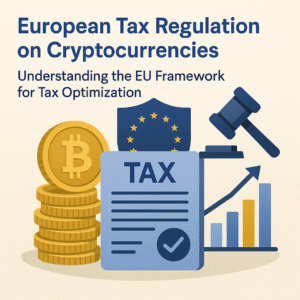Lunes Crypto Analysis/How It Works, Market Value & Buying Guide
Key takeaways
- Short-term volatility : Lunes remains subject to typical crypto market fluctuations.
- Key influence factors : Local regulations, B2B adoption, and tech innovation.
- Long-term growth potential : Practical use cases and accessible hybrid model.
- Positioning vs. Major cryptos : An alternative focused on simplicity and real-world services.
What is Lunes ?
- Symbol : LUNES
- Category : Altcoin – Blockchain infrastructure & decentralized services
- Main function : Enables simple, secure, and user-friendly blockchain-based services such as token generation, payments, digital certificates, and electronic voting.
Project objective :
To democratize access to blockchain technology through an all-in-one, intuitive platform tailored to real-world business and individual needs. Launched in 2018 in Brazil, the Lunes project was built as an alternative to overly complex blockchains that often alienate non-technical users. The platform aims to make blockchain services easy to use and integrate, particularly for small businesses, municipalities, and professionals such as notaries. Lunes uses its own independent blockchain infrastructure, combining decentralization with efficiency. It offers services like token issuance, document storage, and smart contract creation in a plug-and-play format — no coding required. Buy LUNES tokens easily through Latoken or Mercatox.How Does Lunes Work ?
Lunes operates on its own blockchain, built to be fast, secure, and user-friendly. Unlike Ethereum or Bitcoin, Lunes isn’t designed for thousands of dApps but rather to deliver practical blockchain services that are ready to use.Technology Overview
- Consensus Mechanism: Proof of Stake (PoS)
- EVM Compatibility : Not compatible with Ethereum Virtual Machine
Technical Features:
- Lightweight architecture for fast, simple usage
- Built-in services : token creation, voting, certification
- Interoperability via evolving API integrations
LUNES Token Use Cases
- Payment of transaction and service fees
- Validator rewards via staking
- Access to premium services
- Internal smart contract operations
- Start using Lunes blockchain tools by getting your tokens at Latoken.
Project History & Founding Team
The Lunes project officially launched in 2018, originating in Brazil, with the goal of bringing blockchain tools to the masses, especially in developing regions.Key Milestones
- Jan 2018 : ICO raised over $7 million
- Mar 2018 : Launch of the multi-asset Lunes Wallet
- Jun 2018 : Mainnet went live with a working PoS structure
- 2019–2021 : Expansion of blockchain services to SMEs, schools, and local governments
- Since 2022 : International growth and enhanced API for third-party integration
Platforms to buy lunes
Founders and Team
- Anderson Mendes – CEO Brazilian tech entrepreneur with expertise in distributed systems and blockchain platforms.
- Guilherme Maia – CTO Full-stack developer with over 10 years of experience, specializing in blockchain architecture.
- Rodrigo Vieira – Marketing Director Leads Lunes’ growth and adoption strategies, with a background in fintech and digital comms.
What Makes [Nom cryptomonnaie] Unique?
Practical Use Cases
- Custom Token Creation No coding needed — small businesses use this to launch loyalty or local community tokens.
- Digital Certificates Used by schools and companies to issue verified documents (e.g., diplomas, legal papers).
- Decentralized Payments Fast, low-fee crypto payments accepted by merchants as alternatives to credit terminals.
- Secure Electronic Voting Transparent voting for companies, non-profits, and institutions with blockchain auditability.
- Timestamped Document Storage Certify originality and date of digital creations or legal content on the blockchain.

Lunes positions itself as a pragmatic crypto project, focused on utility and simplicity. Its all-in-one ecosystem — wallet, blockchain services, no-code tools — appeals to a broad audience, especially in under-digitized regions.
Thanks to its local partnerships, real-world use cases, and educational efforts, Lunes is earning credibility where many cryptos fail. If the team maintains its practical approach and improves international accessibility through APIs, Lunes could grow steadily in relevance.
For investors and users seeking a functional, grounded blockchain project, Lunes offers real value and long-term potential.

FAQ – Lunes
- What is the LUNES token used for ? LUNES is used to pay for transaction fees, access services (certificates, tokens, voting), and participate in staking on the Lunes network.
- Is Lunes a good investment ? Lunes may appeal to those seeking a utility-driven crypto with real-world use cases and adoption potential, particularly in developing markets.
- How is Lunes different from Ethereum ? Lunes is not EVM-compatible and requires no coding. It offers a simplified, user-friendly experience, unlike Ethereum’s developer-centric model.
- Where can I store LUNES tokens ? Use the official Lunes Wallet (desktop and mobile), or store tokens on exchanges like Latoken and Mercatox that support LUNES.
- Is the project secure ? Yes, Lunes uses a PoS consensus model and emphasizes transaction transparency and data authenticity across all services.
- How do I buy LUNES tokens ? Purchase LUNES on exchanges such as Latoken or Mercatox by creating an account, depositing funds, and trading for LUNES.
Disclaimer :
Trading is risky and you may lose all or part of your capital. The information provided does not constitute financial advice and/or an investment recommendation
Top-Rated Platforms to Trade Crypto
Explore Our Financial Views on the Market
Crypto News & Insights
Digital Assets Forum 2026 returns to
The Digital Assets Forum (DAF), one of Europe’s most respected...
Blockchain and Cryptocurrency Conference (B2C’ 2025):
The Blockchain and Cryptocurrency Conference (B2C’ 2025) is scheduled for...
European Tax Regulation on Cryptocurrencies: Understanding
The regulation of the cryptocurrencies market in the European Union...













